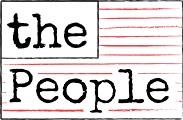Civics U: What Form is Best, and What’s the Difference? Part I
The various types of government and economic systems include forms of democracy, dictatorship, monarchy, socialism, communism, feudalism, theocracy, and capitalism. A society’s or a country’s specific political, economic, and social systems can be distinguished, but they remain interrelated.
Democracy is the historic form of American government, and capitalism is its historic economic system. Since today’s political rhetoric includes frequent references to democracy, capitalism, socialism, and communism, this article will review common descriptions of each. (Most readers will be familiar with these.) The next articles, Parts 2 and 3, will then examine cultural backgrounds and premises of these as opposing systems, and issues involved in the functioning of each.
Historically the U.S. has opposed communism and socialism. Being a communist has been anathema. In 1940 the Smith Act outlawed advocating or belonging to a group that advocated the violent overthrow of the government; it was the basis of prosecutions of members of the Communist and Socialist Workers parties. In 1954 the Communist Control Act outlawed the Communist Party and criminalized membership in and support of the party.
But some recent political campaign proposals supported “democratic socialism”, while conservative politicians and organizations warn that the expansion of government spending for welfare programs for individuals and corporations is a move toward socialism and communism.
DESCRIPTIONS
– people choose leaders by voting
– everyone is treated equally and has equal rights
– individual liberty; freedom of dissent
– government by the people: rule of the majority
– the supreme power is vested in the people and exercised by them directly or indirectly through a system of representation usually involving periodically held free elections
– the absence of hereditary or arbitrary class distinctions or privileges
TYPES: direct, representative, constitutional, monitory, pure
– the [means] … used to make and transport products (such as land, oil, factories, ships, etc.) are owned by individual people and companies rather than by the government
– private or corporate ownership of capital goods, by investments that are determined by private decision, and by prices, production, and the distribution of goods that are determined mainly by competition in a free market.
– major industries are owned and controlled by the government
– collective or governmental ownership and administration of the means of production and distribution of goods
– the government owns the things that are used to make and transport products (such as land, oil, factories, ships, etc.) – no privately owned property
– goods are owned in common and are available to all as needed
– a totalitarian system of government in which a single authoritarian party controls state-owned means of production
– a final stage of society in Marxist theory in which the state has withered away and economic goods are distributed equitably
– production and wealth are collectively owned, but the country has a democratic system of government…
– ownership of private property is limited – government regulates the economy
– government programs offer assistance and pensions…. the government should provide a range of essential services to the public for free or at a significant discount, such as health care and education.
FURTHER COMPARISONS
What Is Communism?
Communism … aims to equalize the two classes of society—the working class and the wealthier “capitalist class”—so that the capitalist class will no longer profit at the expense of the working class.* To achieve this aim, communism discards the capitalist economy, which revolves around private ownership of means of production (manufacturers, factories, and suppliers) and profit. Instead, communism adopts an economy in which the means of production are owned by all of the people (i.e., the government) rather than a few private individuals.
*[by citing this description, the author does not mean to imply agreement with this “classes” view of society.]
Capitalism vs. Communism
Capitalism is an economic system involving free trade and industry that is owned and controlled by individuals, with the goal of making a profit for those same individuals. Wealth distribution is unequal. Every person needs to work for themselves to generate wealth.
… Capitalism favors a democratic system in which the government has very little influence over an individual’s personal and economic freedoms.
NOTE: the majority of the language used in these descriptions is from the sources cited.

